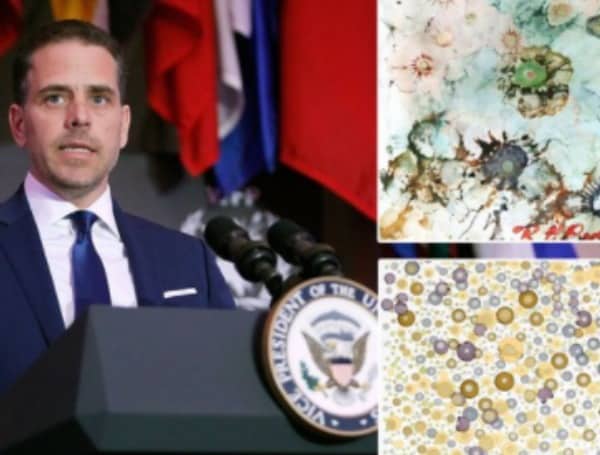Andrew Kerr
The White House flagged the art market as a potential vector for financial corruption in a report Monday, but it made no mention of the ethical concerns raised by watchdogs surrounding Hunter Biden’s newfound and lucrative career in the industry.
The report, which spelled out the federal government’s strategy to combat public corruption, said the markets for art and antiquities “are especially vulnerable to a range of financial crimes” such as illicit value transfer, sanctions evasion and corruption because of “built-in opacity, lack of stable and predictable pricing, and inherent cross-border transportability.”
The report comes less than two months after Biden reportedly sold at least five pieces of artwork for $75,000 apiece in Los Angeles, despite having no formal training or experience.
Biden, 51, became a full-time artist in 2019 after spending most of his professional life working in private equity, lobbying and law, The New York Times reported.
Hunter Biden told Artnet News in June that he seeks to bring out “the universal truth” through his artwork.
“I don’t paint from emotion or feeling, which I think are both very ephemeral,” Biden said. “For me, painting is much more about kind of trying to bring forth what is, I think, the universal truth.”
“The universal truth is that everything is connected and that there’s something that goes far beyond what is our five senses and that connects us all,” he added. “The thing that really fascinates me is the connection between the macro and the micro, and how these patterns repeat themselves over and over.”
Multiple art critics told Politico that Biden’s artwork was fetching extreme valuations because of his name, not his artistic abilities.
“Paintings are only as valuable as what some customer will pay for ’em,” art critic Geoffrey Young told Politico. “He’s complexly famous, but not yet for art. Guess people will pay for a known last name.”
Numerous ethics experts have raised concerns that buyers of Biden’s artwork are trying to curry favor with the president, but the White House has pledged that the identities of the purchasers have been kept anonymous from both Hunter Biden and his father’s administration.
But ethics experts poked holes in the White House’s pledge after Hunter Biden was spotted at a Los Angeles art gallery in October alongside prospective buyers.
“It shows the deal’s not going to be secret,” said former White House chief ethics lawyer Richard Painter, a Democrat. “I think the White House needs to go to Plan B.”
“Because we don’t know who is paying for this art and we don’t know for sure that [Hunter Biden] knows, we have no way of monitoring whether people are buying access to the White House,” said Walter Shaub, the former head of the Office of Government Ethics. “What these people are paying for is Hunter Biden’s last name.”
The White House did not return a request for comment.
Check out Tampafp.com for Politics, Tampa Local News, Sports, and National Headlines. Support journalism by clicking here to our GoFundMe or sign up for our free newsletter by clicking here.
Android Users, Click Here To Download The Free Press App And Never Miss A Story. It’s Free And Coming To Apple Users Soon.
